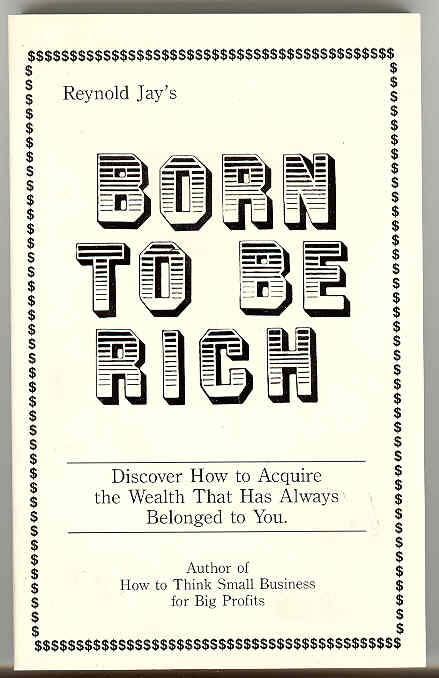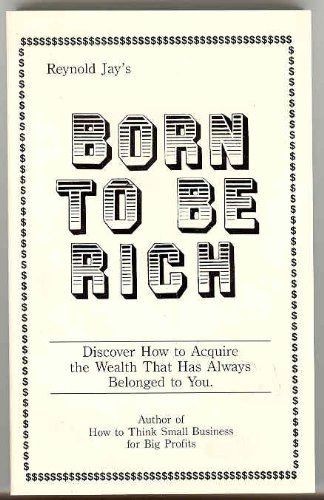~SETTING GOALS: The Key to being Successful. Part 1~
RJ set a goal to become an author 25 years ago.






Realize your Dreams by Setting Goals: Part 1
REALIZE YOUR DREAMS BY SETTING GOALS: Part 1
Note: read “Your Personal Treasure Barge” before reading this article.
You've probably seen treasure barges floating past you during your lifetime. By now it is clear that great wealth is not likely to float up to the bank for you to pluck from the water.
You are disturbed that you haven't received your share of the treasure and will use that inner dissatisfaction as the spark for capturing your own barge.
You'll need a plan of action. You may need tools and special skills that you don't now have. You may ask, “What am I supposed to do?” if you don't feel drawn toward a particular endeavor.
Dreams
Every wealth plan begins with a thought. Your mind must first conceive an idea that can eventually be transferred into a plan of action for you. Your subconscious mind is a possible source for an idea. You could merely wake up one day and find the perfect idea in your mind. If you are looking for ideas, let your imagination run wild. Write down all the things you might consider doing. Regardless of how wild and crazy an idea may seem to you, write it down.
If you are fascinated by computers, for example, you may want to write down that you would like to own a company that rivals Apple or IBM. Perhaps you would like to own a string of auto repair shops, if you have mechanical skills.
A female associate of mine carries a large calendar in her purse and keeps a schedule of events for herself in it. She says this is an invaluable tool which keeps others from demanding her time.
Quite often, she says, she will be told that a report is due by the following month on a particular day. When her superiors approach her and claim they said the report was due a week earlier than they had previously announced, she can retrieve her calendar and recount the event to the tiniest detail. Since the calendar represents documented proof of her statements, she holds the upper hand and wins every dispute.
I carry a 3x5 index card with me everywhere. Each morning, I pull out the card from the previous day. I revise information on a new card and add new items to my daily schedule. Then I number each event in the order in which I will be working on each goal and sometimes add the exact time I expect to be involved with the goal.
This helps to eliminate procrastination because any item that appears on my daily card after several days becomes very apparent since I must write it down on a new ca rd each day. This system gives me a good feeling since I can review the success of the previous day’s goals and know that each day brings me closer to a richer life.
After you write down every idea you can, place it all on a small 3x5 index card and carry it around with you. During your internal time bring out the card and think about the different idea you've selected. Add new ideas as you think of them and eliminate those ideas that lose their appeal.
If you do this for awhile, your mind will be continually searching for an idea. Everyday activities which seemed relatively unimportant to you suddenly will take on new meaning. Conversations with friends and associates, who have spoken to you about their goals in the past, held little interest, but now you will find yourself listening intently.
Very often you will find good ideas at your place of employment. It is not uncommon to see inefficiencies in your immediate environment that could be improved upon. This is why automobile plants offer big cash incentives for suggestions to improve efficiency.
A worker for a meat company felt that the machine for making hamburger patties was not as efficient as it could be. He worked for three years in his garage and invested his life savings in a machine that did a better job.
His new design proved to be so much more efficient, his company eventually obtained contracts to serve many hamburger chains around the country, including McDonald's.
Look around the place where you work. It's likely that you will obtain lots of good ideas that could be pursued in a similar manner.
Good ideas are often spin-offs from other activities. A lecturer associate of mine bought a tape duplicating machine so that he could sell his cassettes after the lectures.
Often his friends would approach him and request that a duplicate be made of a tape. Soon local musical groups were contracting with him to manufacture tapes of their releases. This ultimately led to a manufacturing operation that employed a dozen people with gross receipts over a half million dollars a year.
It is not uncommon for print shops to begin in exactly the same manner. Very often the entrepreneur will advertise his merchandise economically with flyers and pamphlets produced on a second hand mimeograph machine.
If the merchandise doesn't sell as well as anticipated, he often finds himself printing up flyers for other people at a handsome profit. The original idea is abandoned, but he eventually winds up a big success with his own printing establishment.
Your success with finding a worthwhile idea is directly related to your involvement with your environment. Individuals who are involved in everything going on around them can't help but be successful.
For example, a person who is laid off from work should not sit around and feel sorry that he has no money or job. Instead he should become a volunteer if he can't obtain employment and get involved in community projects.
Unemployment for any involved person will not last long, for an energetic person of this sort will be in a position to see opportunities that others do not see. At the school where I work, I often see these people volunteering their services for handicapped students. Many of them simply begin as volunteers because of the compassion and love they hold for children. After a short time, they are placed on the payroll in one capacity or another and find a new life for themselves.
Some take a few college courses and eventually obtain degrees and become teachers. If you have special knowledge, you might want to consider teaching evening classes at colleges and community education programs. Most often no certification is needed to do this.
Selecting Your Dream
Many ideas will come to you, and soon you may have a file of possibilities. Some ideas are probably very good ones but do not offer any special interest to you. Other ideas may be interesting but not have the potential for great wealth. You'll be weighing the pros and cons of each idea and very likely change your mind about them from day to day. Let's examine some questions that you might ask about each idea.
A Half Dozen Questions you must Answer
1. Would you enjoy it? This is extremely important and should be a major consideration for any idea you may wish to pursue. You might enjoy this activity for a short while. Perhaps the activity is fun as a hobby or leisurely pursuit, but you might feel quite differently about attempting to earn money with it. On the other hand, you might feel that you would be just as excited about the idea ten years from now as you are today. If this is the case, answer “yes” to this question.
2. Do you possess skills or special knowledge that would be helpful? Very often it is special knowledge and skills that placed the idea into your mind. If you already possess skills and knowledge that would be helpful, it is very likely that you could begin your enterprise much quicker without a lot of research.
Almost every worthwhile idea will require knowledge, skill or talent. Already possessing them is a great asset to you.
3. Is the scope of your idea limited or unlimited? If your idea is to design and market a sophisticated computer, software tape, this simple product could merely be the launching pad for a company that would eventually rival IBM.
That's an idea with unlimited potential. , However, if you merely want to open a retail shop down the street, you would be, limited to the potential of that location.
Every good idea has limited potential. If you can successfully operate one retail outlet, why not two, or two hundred? A success can be repeated, many times. Operating two hundred stores may not be what you have in mind, so you may begin thinking about just how far you wish to go with the idea.
4. How long would it take for the business to create disposable income for you? It is not unlikely that any project you undertake would require both time and money.
How long could you endure a project that required much of your personal income for three and five years? If you have a great deal of time and patience, and can adjust to the personal sacrifice, this would not be an important obstacle.
Most of us would like to see profits providing a disposable income right from the first day of operation. You may have an idea with enormous potential, but if the sacrifice is too great, you might lose interest before the profits come rolling in. If you want to enjoy profits from the first day, I'd suggest you pick up a copy of my book, How to Think Small for Big Profits, which outlines this technique in detail. $9.95 and free shipping USA.
5. What is the greatest financial potential of the idea? I heard of a gentleman who baked very fine homemade bread in his home and sold it to a bakery near there. He took great pride in the quality of his bread and was able to bake about fifty loaves during the weekend.
Unfortunately he didn't earn any profits from all this work. The bakery made all the profits! This system of baking bread had no potential regardless of how hard he worked or how great tasting the bread. Be sure you have an idea that is profitable.
Any worthwhile idea should have the potential for you to earn a minimum of $1 hundred thousand dollars a year net profit. Perhaps you will not build your organization to this point, but the potential to do so should be there.
6. Do you really want to do this? Perhaps all indications are that the idea would be a grand success, but it, may require activities on your part in which you just don't want to get involved. If this is the case, consider the idea that employees could perform the undesirable tasks, or take on a partner who could do the things you don't enjoy.
A good idea will take the efforts of a success team. No one person can do everything for himself. You should feel a compulsion to get involved.
Lords and Serfs
Great success does not necessarily come from within your organization. Many of the ideas within these pages are presented from the standpoint that you will be the leader of a success team. However, your plans may be that you will become a member of a team. This means that you may, in fact, have a job working for someone else. Your success depends upon your contribution to the success of the team. If your team fails, you fail. Make your team a winner, and become a winner too. Apply all of these principles to your job, your team or your organization.
Do not feel that you are inferior because you do not have original ideas or cannot change the world radically.
Take pride in what you do. Contribute your best efforts to the world. Your worth as a “giver” to the world is all that is required of anyone.
The same principle applies to lords and serfs alike. We all tread the same ground and share the same water. Our goals are common to humankind.
Achievable Goals
Read the HUB “Tiny Tim and the TV” for an entertaining story on how to achieve goals.
Reynold Jay




How To Achieve Any Goal
Ask yourself three questions about any goal that you have written down.
1. Is this goal specific? If your goal says that you are going to be a better mother or father to your children, you might be more specific. Say that you will help them with their school work, offer a better discipline program and see that they eat the proper food.
2. Will there be any observable difference when the goal is completed? Hopefully there will be some kind of criteria that can be used as a yardstick. Being better in school could be measured by better grades. Behaving better may be difficult to measure, but better health would be more observable.
Most goals can be measured in time. Five year business plans are commonplace goals, and this time span represents a reasonable amount of time for any worthwhile long range endeavor.
If you plan to set up a five year business plan, you should break it down into one year intervals and then into quarter period components. Specific targets of various types such as gross sales, net worth number of customers and number of employees would be indicated for each quarter period.
It would not necessarily contain a lot of specific information, such as acquiring loans for inventories, methods of accounting, and the like. These details are best tackled as encountered.
Target dates for landmark events should be set but flexible. For example, you might plan to open the doors of your petite size dress shop in March, but decide that April or May is worth the wait in order to find the right location.
Succeed With Small Goals
The vastness of a major goal is often overwhelming because it progresses so slowly. We are only human and cannot wait five years to offer ourselves a reward, so we must serve ourselves small rewards along the way.
The acquiring of any goal will require sacrificing various life pleasures. More work results in less play, more self-discipline and fewer rewards for oneself. The quality of the rewards is much greater, however. That is why we attempt to accomplish goals in the first place.
Without financial goals, most of us could not afford to take a two week vacation to Disney World in Florida, Disneyland in California or Disney World in Japan.
Allow your plan to be flexible enough for an occasional setback. Occasional failures should be looked upon as learning experiences that will eventually lead you toward your ultimate goal. You want to win the war. Minor losses on the battlefield are unimportant. , Several years ago, I was involved in a large advertising campaign that greatly increased the business at one of my
confectionery stores. However, I hadn’t, anticipated the problems my increased volume would cause for my distributor. Ultimately the shipments of merchandise arrived after the related event took place. This caused some loss in revenue, but I had learned to obtain loans well in advance of the selling season and store the merchandise in a local warehouse.
This small failure became a lesson for me, which assures that my future success is guaranteed.
It's better to have time working for you rather than against you, and this is easily accomplished. The best technique for conquering time is to be early. Getting my merchandise housed in a warehouse well before the season arrived saved a lot of problems.
Arriving ten minutes earlier at work each day assures that I will have a parking spot and will be undisturbed for the most important moments of the day. Attending to projects long before they are due ensures that I will have time to reflect upon the quality of my work, without undue pressure.
Large mailings are sent to mail order customers each year in my confection business. The layouts are done each summer and my crew stuffs thousands of envelopes during slack business hours in September for a mailing that reaches the post office in October.
Without careful, methodical planning I could find myself in October at the mercy of a printer who might hold up my order.
◊Order Kindle Born to be Rich now.











